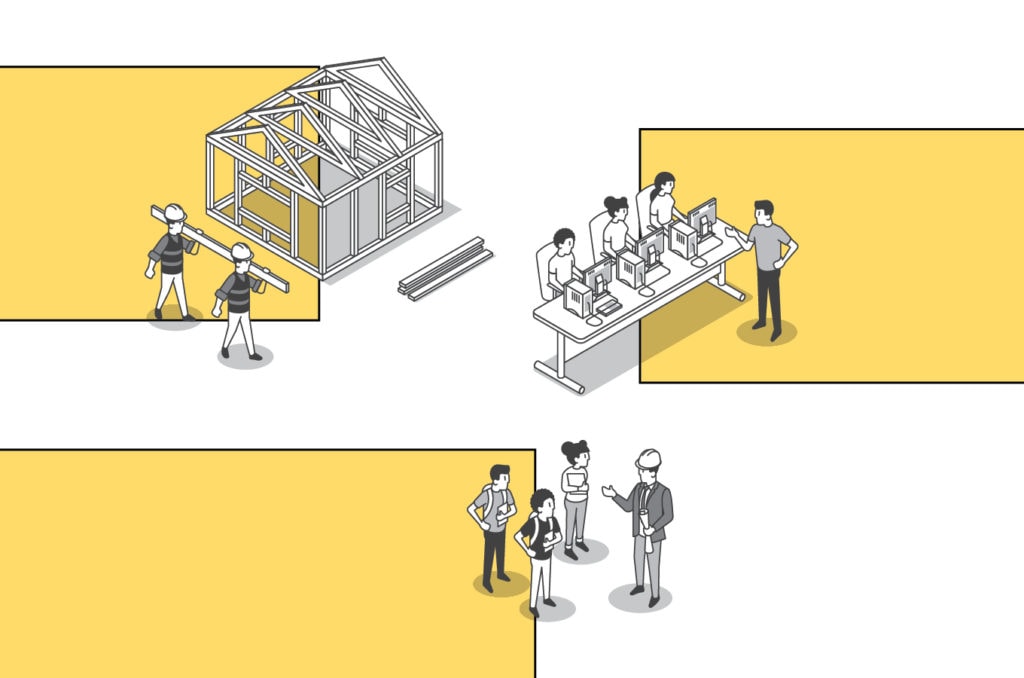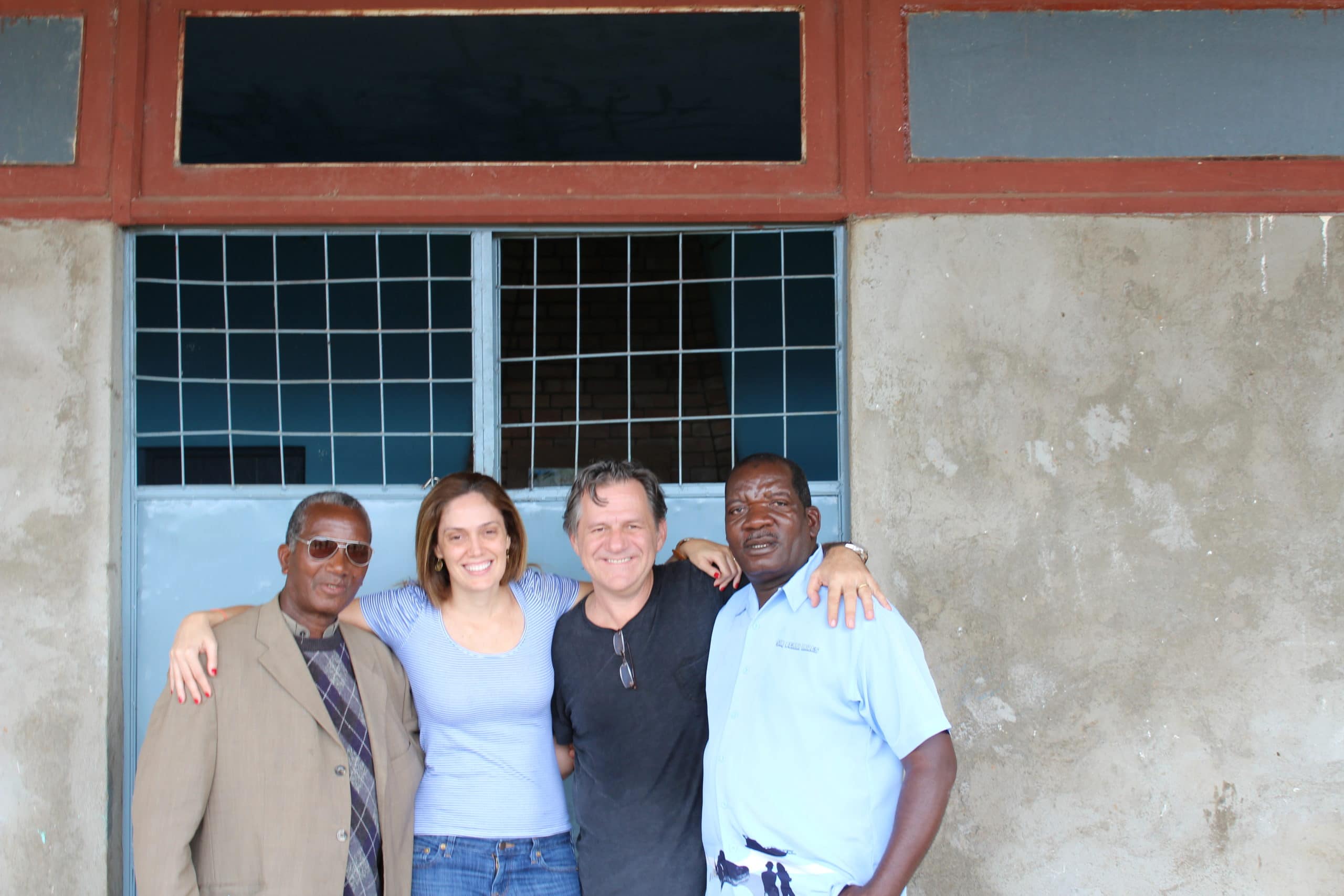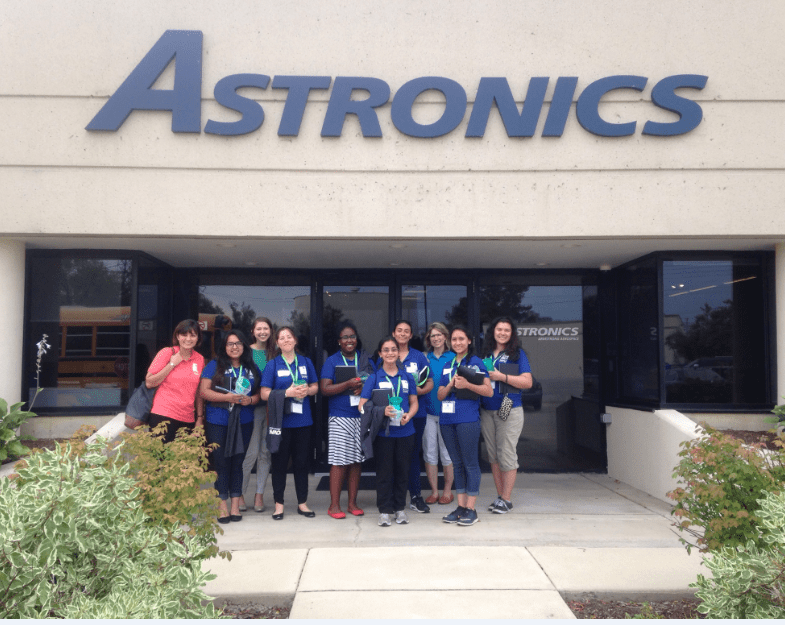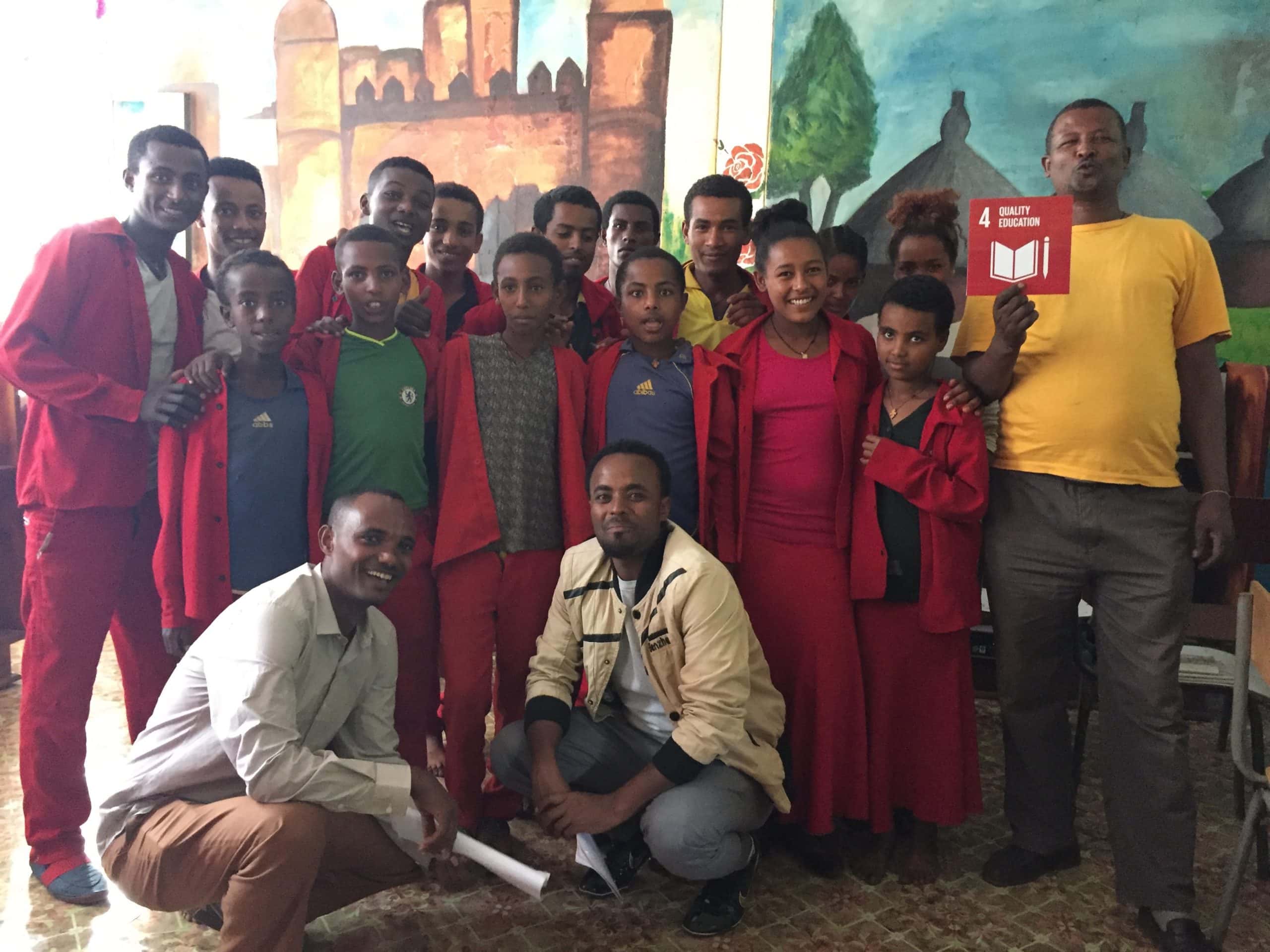 APEX members do good by working to improve the passenger experience – but also by donating their time and money to the charitable causes they support. For Touch, Astronics and SITA, that means fostering educational opportunities in their communities and beyond.
APEX members do good by working to improve the passenger experience – but also by donating their time and money to the charitable causes they support. For Touch, Astronics and SITA, that means fostering educational opportunities in their communities and beyond.
Pay It Backward
By Emily Adams
When Joe Carreira left his home country of Angola, in southwestern Africa, war had broken out – he was an orphan and a refugee. “Where I went to high school, there were a lot of orphans. People didn’t have a lot of money,” Carreira says. It was only thanks to a few wealthy individuals and the support of churches that the school was kept afloat, giving him a better education than he would’ve expected for someone in his situation. “One of the leaders of the schools said, ‘Whatever life teaches you, don’t forget to give back to Africa what Africa has given to you.’ That stayed with me,” he puts simply.
Now with over 25 years of airline and in-flight entertainment management experience, he’s the founder and managing director of content service provider Touch, but his childhood in Angola has always been in the back of his mind. It wasn’t until 2012 that he decided to return to Quipeio, the area he grew up in. Traveling back to his old school, what he found was far more upsetting than he’d expected. “The whole school had been completely destroyed [by the war],” Carreira says.
In that moment, it became clear to Carreira that he should be doing something with the money made at Touch. Now, five percent of the company’s profits are put back into Quipeio through the Touch Care Foundation. While the original plan had been to rebuild the high school, the need for a primary school was much greater.

Over the past five or so years, the money has been going to the construction of the primary school, as well as food, beds and furniture. Since the beginning, the company has been adapting and reacting to what the community needs, listening to the problems and finding practical solutions: from building a new roof for the girls’ dormitory to funding a new tractor to meet agricultural needs – a project Touch is currently working on.
For 2019, Carreira says they’re ready to do even more. “One of the things that has been in the back of our minds is that what we are doing doesn’t really solve problems long term.” From introducing special short-term classes given by senior students from the US, Canada and Portugal, to addressing bigger problems in the region, the foundation is developing support for Quipeio that will extend long into the future.
While the foundation was born from Carreira’s personal history and relationship with the area, the rest of the Touch team are now getting involved. Unbeknownst to Carreira, one of his employees, Juliana, had been working on a similar project with a school in eSwatini (formerly Swaziland). Hearing about her visit, Touch gave her the money to buy hygiene kits, toys, uniforms and furniture for the school; she even had money left to pay for the university tuition fees for two young girls. “Juliana came back a changed woman after she went to eSwatini. We are so much more aware of what is out there in the world, and how we can have such an impact on other people’s lives by doing just a little.”
So, does Carreira feel as though he has fulfilled his goal? Has he given back to Africa what Africa has given him? He laughs. There’s still a very long way to go, but he remains driven to someday pay for the recovery of the high school. “Above all, Africa gave me an education, which, if I do things right, translates into dividends beyond the financial value of what Africa gave me during my childhood in Quipeio. So, I have to be giving them more than what I received at the time.”
Next-Gen Engineers
By Paul Sillers
Through its 11 subsidiaries across the United States and Europe, power, lighting and connectivity specialists Astronics participates in philanthropic activities tailored to the needs of its surrounding communities and the causes that matter to each subsidiary’s employees. Astronics’ Connectivity Systems and Certification (CSC) subsidiary, for example, has for several years supported the Midtown and Metro programs of the Midtown Educational Foundation (MEF), whose mission is to guide low-income urban youth in Chicago along pathways
of success.
“One of MEF’s initiatives is offering summer apprenticeship programs for high school students interested in engineering, and Astronics is proud to be one of its summer site visits,” says Michael Kuehn, president of Astronics CSC. The company provides tours of its plant and gets students engaged, working in teams on an engineering challenge.

It all started when an Astronics employee, who volunteers as a tutor at MEF during the school year, became aware of the apprenticeship program and thought Astronics might be an interesting field trip for the students. “We believe organizations like Astronics should contribute to their communities and the world at large in ways that are meaningful to their employees,” Kuehn says.
“If not for this program, students might not otherwise have exposure to the aerospace industry,” he observes, “and it’s really exciting to think we might play a small part in even one student’s life. It’s also really fun for our employees to talk to the students and show what they do!”
Tech Support
By Marisa Garcia
Three hundred and forty teachers trained, 70 computer labs created, 1,361 computers installed and 44 Raspberry Pi devices in use. These are some of SITA Air Transport Community Foundation’s accomplishments across Africa, in countries like Ethiopia, Uganda, Zambia and Zimbabwe. As a result, more than 80,000 students – 51.4 percent of whom are female – have benefited, says Amber Harrison, director, CSR at SITA.
Established in 2014, the foundation is committed to sustainable development, gender equality and support of future technology leaders in Africa. It works with established organizations, including Computer Aid International, Promoting Equality in African Schools, the University of the Witwatersrand and the Charities Aid Foundation.
“SITA was founded as a community organization, so we are owned by the transport industry and dedicated to it,” Harrison says. “We wanted to really take a look at how we could, as an organization and for the community, address some of the challenges that we see around the growth of aviation. We thought that the big area we could do that in was through education, and through access to ICT [information and communications technology].”

One of the success stories that Harrison is most proud of is the funding of Makhosazana Moyo’s studies. She was recommended by her teachers for funding while pursuing her bachelor’s degree in aeronautical engineering, and has now gone on to pursue a master’s degree in the same field at the University of the Witwatersrand in Johannesburg.
“The teachers said to us, ‘We know that you’re looking for master’s students, but there’s this amazing young woman, a student in Zimbabwe, who’s the top of her grade. She’s one of those students who comes along once in a decade.’ That really sparked our interest, so we agreed to support her,” Harrison said.
“Giving Back” was originally published in the 8.5 December/January issue of APEX Experience magazine.


